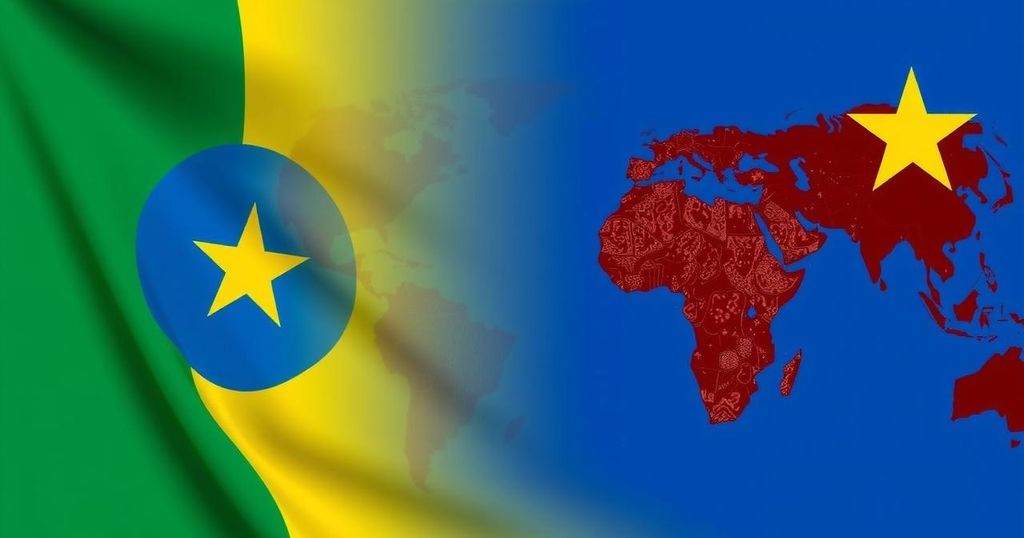Turkey’s Strategic Expansion into Africa: Non-Colonial Partnerships and Growing Influence

Turkey is strengthening its influence in Africa by leveraging its non-colonial past and enhancing trade and defense partnerships. The upcoming ministerial meeting in Djibouti aims to foster cooperation among 14 African nations. Turkey’s mediation role in the Ethiopia-Somalia dispute emphasizes its established relationships and investments in the region.
Ankara is expanding its influence in Africa by leveraging its non-colonial past and enhancing its defense projects alongside a broad trade network. Ahead of a ministerial gathering scheduled in Djibouti on November 2 and 3, diplomatic sources from Turkey have emphasized Turkey’s attractiveness as a partner in Africa, attributed largely to its historical relationship with the continent, devoid of colonialism. The meeting, which involves Turkey and 14 African nations, is part of a diplomatic initiative initiated in 2008, aiming to foster cooperation and dialogue. Top diplomat Hakan Fidan is set to represent Turkey at this vital assembly. According to Ankara’s diplomatic sources, “Turkey’s biggest advantage is its non-colonial past. When anti-imperialist leaders are looking for new partners, they think first and foremost of us.” Historically, even though the Ottoman Empire once had a substantial presence in Africa, it lost control of those territories long before the establishment of the modern Turkish Republic in 1923. Turkey’s role as a mediator in the ongoing conflict between Ethiopia and Somalia highlights its growing influence, particularly as both parties have expressed a high level of mistrust toward other major powers in the region. The source indicates that Turkey is “best-suited” for mediation given that it commands confidence from both Ethiopia and Somalia as negotiations progress. Turkey’s investment in Somalia, marked by two decades of commitment in agriculture, military training, infrastructure, including the construction of the Mogadishu airport, schools, and hospitals, has established a significant Turkish footprint in the region. An additional testament to Turkey’s expanding presence is the recent deployment of the Turkish exploration vessel Oruc Reis to the Somali capital, tasked with investigating oil and natural gas resources in designated areas under a newly formed agreement. Furthermore, Turkey has facilitated mining agreements with Niger, reinforcing its economic engagement in Africa. Turkish Energy Minister Alparslan Bayraktar has highlighted the potential for oil and natural gas within the region. Turkey’s military collaborations in Africa comprise over 25 countries, supplying them with military equipment, including drones. The strategic support extended to Niger, Burkina Faso, and Mali, particularly against the backdrop of sanctions, has further strengthened Turkey’s relations with these nations. According to recent studies, Turkey ranks as the fourth-largest arms supplier to sub-Saharan Africa. Enhancing its resources and military cooperation, Turkish construction firms are actively engaged in significant infrastructure projects, such as the $6.5 billion railway network development in Tanzania. In 2022, trade between Turkey and African nations is predicted to surpass $40 billion, with Turkish Airlines serving approximately 50 destinations across the continent, underlining Turkey’s commitment to deepening its ties with Africa.
The article addresses Turkey’s strategic expansion into Africa, focusing on its unique position as a non-colonial partner amidst a backdrop of increasing influence through military cooperation, economic investment, and diplomatic negotiations. It illustrates Turkey’s role in mediating disputes in the Horn of Africa and emphasizes the importance of historical relationships which distinguish Turkey from traditional Western powers. This engagement is set against a broader context of Turkey’s developmental and security interests across the continent, highlighting its investments in infrastructure and resources.
In conclusion, Turkey’s strategy in Africa is characterized by a multifaceted approach that includes diplomatic mediation, military cooperation, and significant investments in infrastructure and the economy. It benefits from a non-colonial historical context, enabling it to forge stronger alliances with African nations seeking new partnerships. The ongoing initiatives and growing trade relations signify Turkey’s commitment to becoming an influential player in the region.
Original Source: www.arabnews.com








